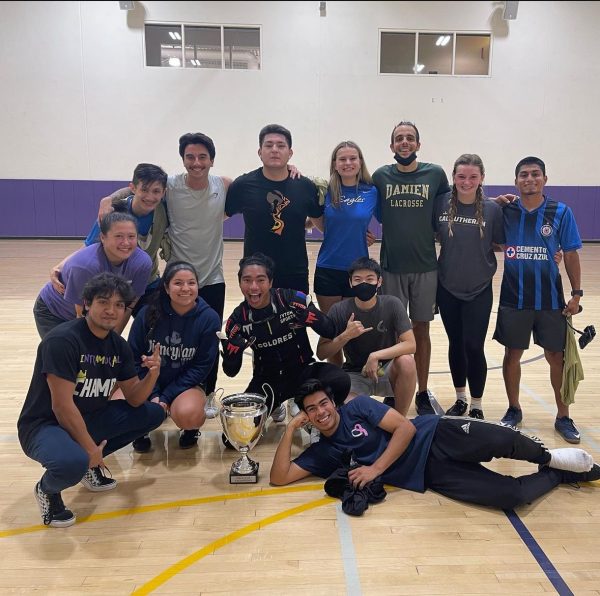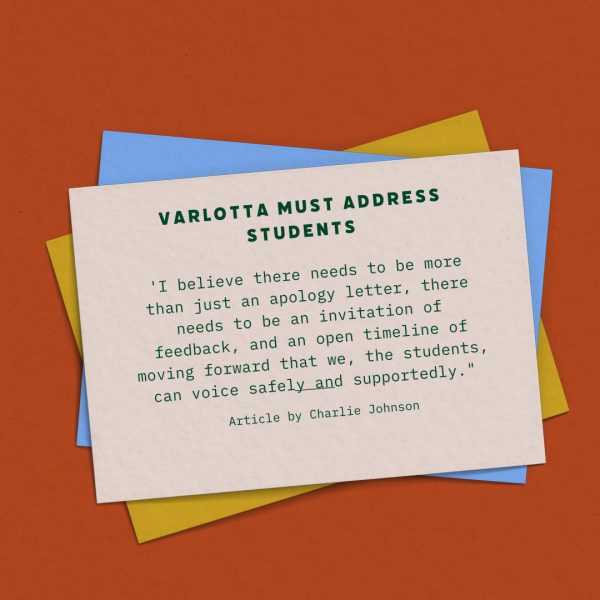Online Class Impacts Students’ Ability to Learn
April 21, 2020
As students all over the world transition to online classes, we are diving headfirst into this type of learning platform and I can say, it is not advantageous.
Since the outbreak of COVID-19, schools all around the globe are forced to transition classes online, in order to uphold the social distancing requirements to prevent the spread of the disease. Students as young as kindergarten and as old as graduates are learning from home.
So, how has this transition been?
For myself, and many other students at California Lutheran University, it hasn’t been easy.
First of all, two of my classes don’t regularly meet anymore. The professors decided not to use Zoom, so we no longer meet during our normal class time.
While this is great from a personal standpoint–providing more time to relax, from a student standpoint, I am missing out on classes and lectures I would normally have. Classes that I pay for, that I showed up for, are now just based on assignments and due-dates.
Additionally, for the classes that do meet during normal class time over Zoom, I find it extremely hard to actually pay attention. There is no longer anything holding me accountable to focus in class, and I find myself cooking breakfast, doing my makeup, cleaning my room and anything but listening.
Now, I realize those activities are personal decisions, but my lack of focus seems to be a result of transitioning to online classes. I am usually a very good student, consistently paying attention and doing my work.
I am not alone in this. Many students have a complete lack of motivation to succeed in their now-online classes. While we understand the reason behind this transition, it does not change my opinion that online learning is not an effective way to learn, especially if it’s something new.
According to Education Week, “being in person with teachers and other students creates social pressures and benefits that can help motivate students to engage.”
I certainly find this true.
With in-person lectures, students feel obligated to diverge all their attention to the task or learning at hand. This means taking notes, not being on your phone and avoiding other distractions, because the professor whom you are demonstrating respect for, is in the room.
With online classes, especially Zoom where students have the choice to mute their microphone and hide their video, students can do just about anything in the privacy of their home.
This takes away from the learning and experience which the instructor intended for, and leaves the student feeling like they’re not even showing up to class, but rather turning on their computer to get those attendance points.
Being online itself is a challenge.
It takes just a few clicks to minimize the lecture window and open your email, or Facebook, or surf the web. No one’s going to stop you because no one knows: they’re all in the comfort of their homes probably doing the same thing.
I am guilty of it. Just the other day I was in a lecture and I was extremely bored and unfocused, I minimized the Zoom meeting and applied to two jobs, which required me to alter my resume while the lecture was going on in the background.
Some may argue that this can be solved by a little self-discipline. According to Peterson’s.com, “The problem is the time management and organization skills necessary to stay on top of your work.”
I think that is the key here: self-discipline.
But there is a bigger problem in today’s current situation of online classes.
Students and instructors were literally thrown into online lectures mid-semester. There was no preparation, no choice, no time to practice self-discipline.
We can not be criticized for our lack of focus and self-discipline, when our whole world was flipped upside down in the course of one weekend.










